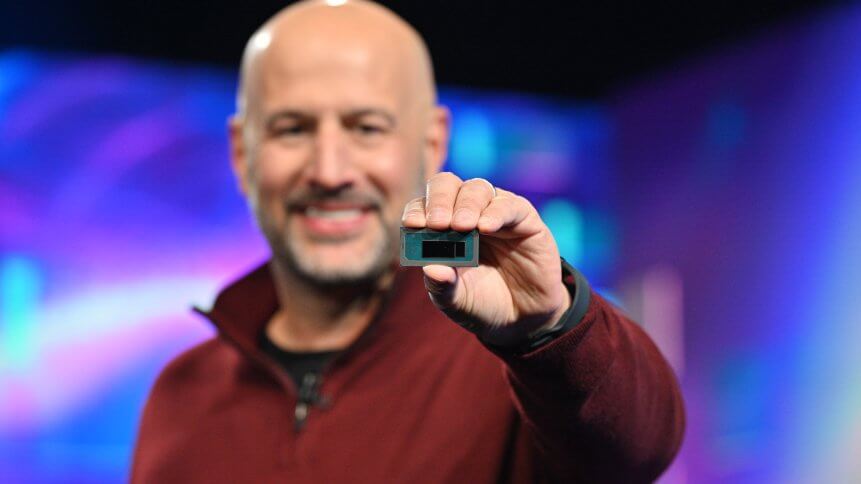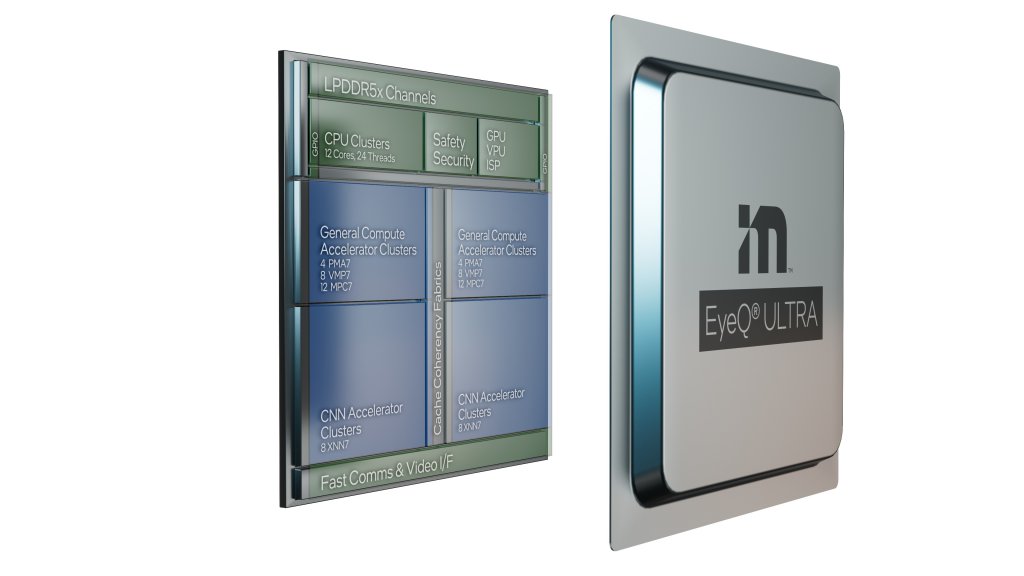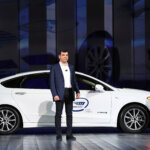Intel takes on driverless and chip supply challenges at CES 2022

- Intel’s Mobileye announces the new system-on-chip for autonomous vehicles
- Mobileye will also work with China’s Geely to build a self-driving car
- Intel also launches the 12th Gen Intel® Core i9-12900HK, the world’s best gaming laptop
Despite COVID-19 concerns, CES 2022 kicked off with some of the biggest announcements being made by tech companies. From advancements in chip and mobile technologies to new work and home innovations, the virtual and physical event is often regarded as the biggest and most important tech event of the year.
For Intel, CES 2022 meant making their presence felt in the industry. After a turbulent year of dealing with supply chain issues in their chip manufacturing operations as well as facing growing competition from other tech companies, Intel demonstrated advancements and momentum with its self-driving subsidiary Mobileye, progress toward discrete graphics leadership, and the launch of the newest members of the 12th Gen Intel® Core family.
During the Intel news conference, executive vice president Gregory Bryant and general manager of the Client Computing Group pointed out that the company with its partners are driving new innovation across products, platforms and services, and delivering on its vision of enabling world-changing technology that improves the lives of every person on the planet.
One of the biggest announcements from Intel at CES 2022 is that its subsidiary, Mobileye is showing progress on multiple fronts. This includes the announcement of a new system-on-chip that is purpose-built for autonomous vehicles.
Mobileye designed the EyeQ Ultra system-on-chip after having first built an AV to understand exactly what a self-driving vehicle needs, in order to operate at a very high capacity inbetween failures. This approach enables the optimum balance of performance across different accelerators and general-purpose processors in an extremely efficient power-performance envelope. First silicon for the EyeQ Ultra SoC is expected at the end of 2023, with full automotive-grade production coming in 2025.

Mobileye introduces the EyeQ Ultra, the company’s most advanced, highest-performing system-on-chip purpose-built for autonomous driving. Unveiled at CES 2022, EyeQ Ultra maximizes both effectiveness and efficiency, making it the industry’s leanest autonomous vehicle chip. (Credit: Mobileye, an Intel Company)
“As a trusted collaborator, Mobileye is firing on all cylinders to deliver scalable ADAS-to-AV solutions that exceed the expectations of our customers and, at the same time, push the industry forward. We’re grateful for our ongoing collaborations and look forward to getting more new industry standards together,” said Prof. Amnon Shashua, Mobileye’s CEO.
Mobileye announced expansions of their longstanding relationships with Volkswagen Group and Ford. For Volkswagen, Mobileye’s advanced mapping technology will be adapted in its driver-assistance features for the Volkswagen, Škoda, and Seat brands. Meanwhile, Ford will work with Mobileye on its advanced driver-assistance solutions via the Ford BlueCruise platform.
Mobileye also announced two firsts with Geely’s Zeekr brand, a level 4 consumer AV expected to begin production in 2024, and the launch and shipment to customers of the industry’s first fully capable level 2+ driverless vehicle — equipped with a 360-degree surround-view sensing system and driving policy for the industry’s most advanced longitudinal and lateral control in the market today.
Also unveiled at the news conference was the Udelv Transporter, a purpose-built autonomous delivery vehicle powered by Mobileye Drive. As announced last year, Udelv plans to produce more than 35,000 Mobileye-driven Transporters by 2028, with commercial operations beginning in 2023.
New processors at CES 2022
Intel also announced the 12th Gen Intel Core H-series processors, setting the standard as the highest-performance laptop processor on the planet. Built on the Intel 7 process node with Intel’s first-ever performance hybrid design, the H-series, led by the flagship Intel Core i9-12900HK, delivers up to 40% higher performance for unparalleled gaming experiences and up to 28% faster gameplay than the previous mobile gaming leader in the market, the i9-11980HK.
At the same time, Intel also marked a new era in the discrete graphics market by announcing the shipment of Intel® Arc graphics (code-named Alchemist) to original equipment manufacturer customers. Intel Arc graphics is the brand for Intel’s upcoming high-performance consumer graphics product. It delivers the newest choice to the marketplace, including many all-Intel discrete graphics platforms.
Alchemist would now be Intel’s first effort in the market as it plans to take own leader NVIDIA, who has been dominating the market. In its recent fiscal year, NVIDIA had graphic chip sales of US$ 9.8 billion.
The chips are Intel’s first effort in many years in the market and will take on leader Nvidia, which had graphic’s chips sales of $9.8 billion in its most recent fiscal year, a 29% increase.
Other consumer and enterprise products announced by Intel included more than 20 new devices powered by the 12th Gen Intel Core H-series, with more than 100 devices in total expected to launch with partners including Acer, Asus, Dell, HP, Lenovo, MSI, and Razer. In addition, Intel also unveiled a new ultraportable mobile processor – the P-series product line – to bring enthusiast levels of performance to thin-and-light laptops.






![Competing with the long-running Intel vs AMD vs Nvidia central processors rivalry, Amazon came out with its 3rd-gen Graviton chip and Trn1 AWS claims the new chipsets will help customers significantly improve performance, cost, and energy efficiency [see_also_flex pos='left' post_id='206950'] When Amazon acquired Annapurna Labs in 2016, the tech giant was seriously evaluating to build custom chips for its cloud infrastructure services, to give it an edge against its arch-rivals, Microsoft and Google. Today, the company has two new custom chips that would give Intel Corp, Nvidia Corp and Advanced Micro Devices (AMD) a run for their money. At its re:Invent 2021 conference yesterday, Amazon unveiled the Graviton3 and Trn1 chipsets. The former is basically the next generation of its custom ARM-based chip for artificial intelligence (AI) inferencing applications while Trn1 is a new instance for training deep learning models in the cloud. Amazon Web Services (AWS) CEO Adam Selipsky said during his keynote address that his market-leading public cloud company is focused on "making the full power of machine learning available for all customers. Lowering the cost of training and inference are major steps of the journey." AWS vs Intel vs AMD vs Nvidia The third generation of Graviton will soon be made available in AWC’s C7g instances, the company said, adding that the processors are optimized for workloads including high-performance computing, batch processing, media encoding, scientific modeling, ad serving, and distributed analytics. Selipsky says that Graviton3 is up to 25% faster for general-computer workload and provides two times faster floating-point performance for scientific workloads, two times faster performance for cryptographic workloads, and three times faster performance for machine learning workloads versus Graviton2. To top it off, Graviton3 uses up to 60% less energy for the same performance compared with the previous generation, Selipsky claims. Amazon’s vice president of Elastic Compute Cloud Dave Brown told Reuters that the company expects it to provide a better performance per dollar than Intel's chips. To top it off, AWS still works closely with Intel, AMD, and Nvidia and Brown said AWS wants to keep the computing market competitive by offering an additional chip choice. [see_also_flex pos='wide' post_id='208827'] Graviton3 and Trn1 According to Selipsky, Trn1 will be Amazon’s instance for machine learning training, delivering up to 800Gbps of networking and bandwidth, making it well-suited for large-scale, multi-node distributed training use cases. Customers can leverage up to tens of thousands of clusters of Trn1 instances for training models containing upwards of trillions of parameters. As per reports online, Trn1 supports popular frameworks including Google’s TensorFlow, Facebook’s PyTorch, and MxNet and uses the same Neuron SDK as Inferentia, the company’s cloud-hosted chip for machine learning inference. Amazon is quoting 30% higher throughput and 45% lower cost-per-inference compared with the standard AWS GPU instances](https://techhq.com/wp-content/uploads/2021/12/185050-untitled-design-4-150x150.jpg)



